-
Context and Background
The evolution of women’s access to education in the Gulf Cooperation Council (GCC) countries – Bahrain, Kuwait, Oman, Qatar, Saudi Arabia, and the United Arab Emirates – presents gradual but progressive advancements, reflecting broader societal transformations in the region.
In the early 20th century, education for women was traditionally limited, as cultural norms and economic priorities often favored male education. Girls typically received informal instruction in religious or domestic matters, primarily through family or religious institutions.
By the mid-20th century, national governments began prioritizing modern education systems. For instance, Bahrain established the first girls’ school in 1928, the earliest in the GCC. This marked a turning point as governments increasingly recognized female education as integral to national development strategies. Over time, secondary and tertiary education became more accessible to women, and universities introduced dedicated programs. King Saud University in Saudi Arabia began admitting women in the 1970s, and today, women constitute more than half of university students.
In countries like Qatar and the UAE, government scholarships and the establishment of global branch campuses, such as those in Qatar’s Education City, created new opportunities for women. Female university enrollment soared, with Saudi women representing more than half of university students and UAE women comprising 70% of all graduates.
Women have also increasingly pursued studies in STEM (Science, Technology, Engineering, and Mathematics) fields, supported by national policies. For example, 56% of STEM students in the UAE are women, one of the highest rates globally. Qatar has made strides as well, with women entering architecture and engineering disciplines for the first time in 2008. Education City, inaugurated in 2003, houses leading academic institutions where women constitute a significant portion of the student body.
-
Women’s Educational Achievements and Leadership
Education has empowered women to take on leadership roles across the GCC, spanning government, entrepreneurship, and diplomacy. In Saudi Arabia, 30 women were appointed to the Shoura Council for the first time in 2013, followed by 17 women winning municipal seats in 2015. Bahrain and the UAE set regional precedents with the appointments of their first female judges in 2006 and 2008, respectively. In Oman and Bahrain, the government has appointed an increasing number of women to unelected positions, including cabinet and diplomatic roles.
National governments have implemented key strategies to further promote women’s education and workforce participation such as national visions and governmental councils. For example:
- UAE Vision 2021 prioritized a First-Rate Education System and a Competitive Knowledge Economy, significantly narrowing the gender gap in education. The UAE’s Gender Balance Council and General Women’s Union have focused on advancing women’s representation in STEM fields and other sectors. The extensive public sector investments in the education sector have led to a decrease in the gender gap in primary, secondary and tertiary education.
- Saudi Vision 2030 aims to increase women’s workforce participation to 30%, promote vocational training, and encourage women’s enrollment in leadership programs. Under its G20 presidency, Saudi Arabia’s W20 agenda emphasized women’s inclusion as critical to economic growth and diversification.
- Qatar National Vision 2030 targets gender equality in education and workforce participation. The Qatar Research Fund supports women-led projects in STEM fields.
- Oman’s National Strategy for Education 2040 emphasizes women’s access to higher education, leadership training, and professional development.
- Kuwait Vision 2035 identifies education as a pillar of sustainable development, encouraging women’s participation in scientific research through initiatives like the Kuwait Foundation for the Advancement of Sciences (KFAS). Two specific programs are the quality of education program and the higher education program.
- Bahrain’s Supreme Council for Women integrates women into national development plans and promotes equal opportunities in education and the workforce. Programs such as Tamkeen provide financial support and training for women entrepreneurs and professionals to accelerate women participation in diverse sectors and industries.
-
Key Drivers of Progress
The GCC countries have made significant investments in education, dedicating over 15% of state budgets to the sector in several cases. This financial commitment, coupled with partnerships with international institutions and exposure to global educational standards, has modernized the region’s education systems. Additionally, the inclusion of educated women in the workforce has become essential following the economic shift from oil dependence to knowledge-based industries.
These efforts have led to increased student enrollment, higher literacy rates, and enhanced educational infrastructure. Female literacy in the region has tripled since 1970 in the region, and women are now more likely to pursue higher education than ever before.
At the same time, all the GCC countries have improved the quality of women’s education and significantly invested in educational infrastructure and reforms aimed at promoting women’s access to education.
The expansion of women’s education has resulted in a growing presence of women in the workplace and society. The proportion of women with jobs has increased and in the 20 years from 2000 until 2019, women’s economic opportunity in the region has improved. Since 2005, women in Kuwait have received the same political rights as men, enabling them to vote and run for office. Divorced or widowed women increasingly pursue employment, gaining financial independence that was previously uncommon.
Although women remain underrepresented in political and leadership roles, their growing presence in education and the labor force is shifting societal norms and breaking down prejudices. This progress is fostering greater advocacy for women’s rights and gender equality across the GCC.
Education has been a cornerstone of this transformation, laying the groundwork for broader social and economic advancements. By prioritizing women’s access to education and workforce participation, GCC countries are not only empowering half of their populations but also driving innovation and sustainable growth in the region.
-
Key Issues and Gaps
As previously displayed, all of the GCC states have made education a main pillar in their respective national plans and have implemented national strategies to tackle gender inequality and enhance the women and girls’ right to education.
However, female school enrollment data does not guarantee equal access to education and structural gender inequalities in education are still persistent. Despite the constitutional guarantees and the GCC countries’s ratification of the Convention on the Elimination of All Forms of Discrimination against Women (CEDAW), equal protection principles are often not coupled with obligations or accountabilities of the State to fulfil them. Gender gap is codified in law, frequently in family laws or civil codes, which represent legal forms of discrimination that are systematic and pervade every aspect of life.
For instance, the personal status laws which regulate marriage, divorce, child custody, inheritance recognize the husband as the head of the family, giving him extensive power over his wife’s right to study, work and travel.
The personal status laws codify the guardianship system which exercise significant barriers to women’s right to education as it restricts women’s rights to freedom of movement, work, study. In countries where this system is deeply rooted in cultural and religious beliefs such as in Saudi Arabia, women historically needed their guardian’s permission to enroll in schools or universities. Nowadays, women might need guardian approval to travel to cities or regions where schools and universities are located, restricting their ability to pursue higher education, especially in rural areas with limited facilities. Some state universities in Bahrain, Kuwait, Oman, Qatar, Saudi Arabia, and the UAE require women to show they have male guardian permission before they can go to study abroad.
The systemic discrimination against women in the region is also deeply rooted in social customs which often confine women to domestic roles and marriage duties, restricting their access to education and limiting their participation in both the public and private spheres of life. The domestic role of women often clash with accessing the educational systems because society highly values women’s domestic duties over the opportunities for education.
Girls’ school attendance is limited by long distances and restricted mobility, as societal norms often deem it unacceptable for a girl to walk to school unaccompanied. After marriage, continuing or resuming education becomes challenging for girls, primarily due to societal stigma and household responsibilities.
Additionally, the traditional gender roles limit the ability of women and girls to utilize ICT tools effectively. Indeed, the gender gap in mobile ownership and mobile internet use in the region has remained stagnant or increased within the last few years. The limited access to ICTs hinders women’s capacity to develop the digital skills needed to meet the growing demand for digital literacy and support educational opportunities, especially during COVID-19 pandemic.
Women increasingly enter fields like engineering and IT, yet patriarchal structures restrict their choices and employment. In Kuwait and Oman, women are required to achieve higher grade-point averages (GPAs) to enroll certain university’s department such as engineering.
Another issue is that women’s rights discussions often focus on privileged citizens, sidelining vulnerable groups. Here the concept of intersectional feminism is key, which recognizes that women’s experiences are shaped by overlapping identities such as class, ethnicity, and legal status. Yet, a comprehensive and inclusive approach to women’s rights is still missing in the region.
Among the vulnerable groups, female migrant workers – which represent a large part of the female population in the GCC countries – have more difficulties in accessing the educational system due to language barriers and a lack of protection under national laws. Moreover, stateless girls struggle to access educational institutions as they lack citizenship and nationality rights. Consequently, they are more likely to be involved in child or forced marriages in order to obtain economic stability or citizenship benefits.
Also, disparities between urban, rural, and poorer communities have grown. Regional disparities in access to quality education in GCC countries affect most marginalized girls and women such as those living in rural areas, in displaced or nomadic communities where these gaps widen. For example, rural females at both the primary and lower secondary levels exhibit higher out-of-school rates than other populations in the region due to early marriage, caregiving responsibilities, or the guardianship system, which limits their mobility and autonomy.
The limited economic resources and the lack of financial support further exacerbate gender gaps in educational access. Poverty directly impacts girls’ educational opportunities forcing girls and women living in lower-income households to cover caregiving responsibilities and prioritizing education for men.
Moreover, the quality of education needs to be improved as there is a mismatch between education and the labour market, where the skills taught in school do not adequately prepare students for employment. Gender sensitivity is a key aspect of the quality of education in the sense that educational systems should be sensitive to the specific needs of girls and women.
Also, the lack of democratic institutions and independent judiciary as well as restrictions on freedom of association and assembly represent significant obstacles to women’s access to education and the approval of new legal protections. Firstly, policies that prioritize gender equality, including education reforms, are less likely to be implemented when women lack democratic representation in governance or the opportunity to advocate for their rights effectively. Secondly, without an independent judiciary, laws guaranteeing equal access to education for women may not be enforced. Thirdly, restrictive rules on the formation of civil society organizations in the GCC countries make it more difficult for women advocates to effectively organize and lobby the government for extended educational rights. When freedom of association and assembly is curtailed, women are left with limited ways to organize, voice their concerns, or demand accountability from authorities.
Women’s rights are instead used by governments for political agendas or to enhance the international image rather than addressing systemic issues. This approach is referred to as “gender-washing,” a strategy to present a progressive image to the international community, which increasingly associates women’s rights with democracy.
-
Main consequences
The GCC countries have made notable strides in expanding women’s access to education, but significant challenges remain in ensuring equal educational rights and translating academic achievements into workforce participation. While girls often outperform boys in school and attain advanced levels of education, female labor force participation remains significantly lower than that of men. Growth in women’s political involvement and representation in decision-making positions has been minimal with women being predominantly employed in agriculture (27%), education (21%), and manufacturing (11%). Also, gender-based discrimination in hiring, compensation, and promotions continues to limit their opportunities.
Women in the Gulf also face systemic inequalities in marriage and family life. Many are subjected to the control of their husbands, which restricts their autonomy and decision-making power. For those unable to secure employment outside the home, unpaid domestic work often becomes their primary role, leaving them vulnerable to exploitation and abuse. This issue is particularly acute for female migrant workers employed in the domestic sector. These women face heightened risks of sexual harassment, abuse, and exploitation, compounded by challenges in accessing justice due to language barriers, social isolation, marginalization, and a lack of legal protections.
Caregiving responsibilities further limit women’s ability to pursue or complete their education, perpetuating a cycle of dependency. The guardianship system exacerbates these challenges, as women often require a guardian’s permission to travel or engage in various activities, effectively restricting their educational and personal autonomy.
These structural barriers contribute to alarmingly high unemployment rates among women in GCC countries, some of the highest globally. Denial of educational and economic opportunities prevents women from fully participating in society, leaving many reliant on their families for support. Women who lack access to education are often unaware of their legal rights and how to exercise them, further entrenching gender inequalities. This gender gap not only limits women’s potential but also hampers the socio-economic development of the entire region. The exclusion of a significant portion of the population leads to the underutilization of talent and resources, negatively impacting economic growth and societal progress.
Education is a crucial driver of economic growth and innovation, but illiteracy and unequal access to education reduce the development of human capital. This limits a country’s ability to produce a skilled workforce and stifles its capacity for effective innovation. Increasing women’s participation in the workforce would generate more job opportunities, contribute to national income, and reduce the GCC countries’ reliance on foreign labor. Furthermore, limited education directly affects worker productivity; countries with high illiteracy rates and gender gaps in education tend to be less competitive.
As economies grow and small and medium-sized enterprises (SMEs) gain prominence, new opportunities emerge for women. However, to seize these opportunities, women need appropriate education and training to develop professional and practical skills. These abilities are essential to enhance their performance and facilitate their entry into the job market.
-
Conclusion
The evolution of women’s education in the GCC highlights a remarkable journey from limited access to significant achievements, reflecting broader societal modernization across the region. This progress reflects the growing recognition of education as a cornerstone for economic development and gender equality.
However, the systemic barriers to women’s right to education in the GCC persist. Gender-based discrimination, societal norms, and legal restrictions like the guardianship system, limit women’s autonomy and access to opportunities. Unequal caregiving responsibilities and a lack of supportive infrastructure hinder many women from pursuing or completing education. Furthermore, despite high educational attainment, translating these achievements into workforce participation remains difficult due to discrimination in hiring, promotion, and pay, as well as limited access to leadership roles.
Therefore, the challenge now lies in fully respecting women’s right to education and ensure equitable opportunities in the workforce and leadership roles for women.
Granting women the full right to education and fostering their integration into the workforce would allow them to actively contribute to economic and social spheres. To do so, it is crucial to address the structural and societal barriers that hinder women’s full participation. Reforming policies such as guardianship systems and addressing workplace discrimination must remain priorities. Governments must also invest in targeted programs that provide women with the skills and training needed to excel in emerging industries and STEM fields. Moreover, addressing caregiving burdens and unpaid domestic labor is vital to unlocking women’s potential as full participants in the economy.
International pressure and collaboration remain indispensable advancing these reforms and ensuring that women’s education and empowerment continue to evolve to create a more inclusive approach in the GCC region.
The post Women’s Right to Education in the GCC: Progress & Challenges appeared first on Americans for Democracy & Human Rights in Bahrain.
This post was originally published on Americans for Democracy & Human Rights in Bahrain.
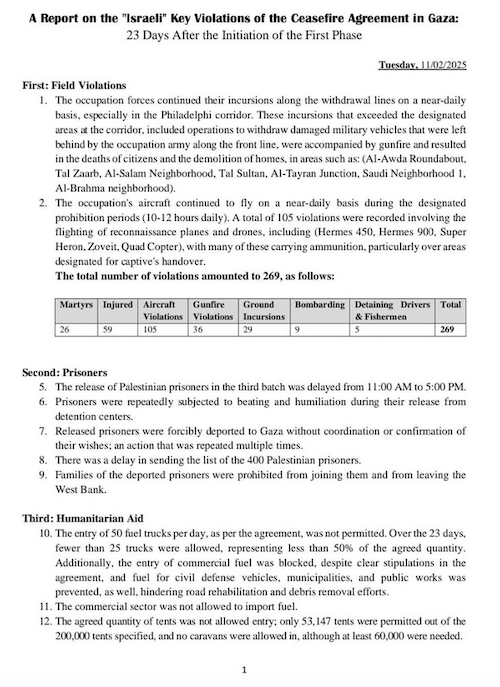
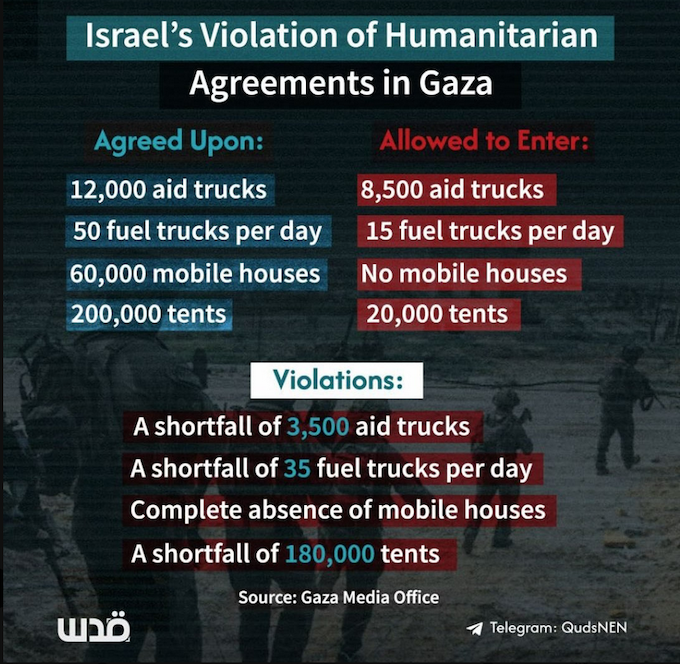
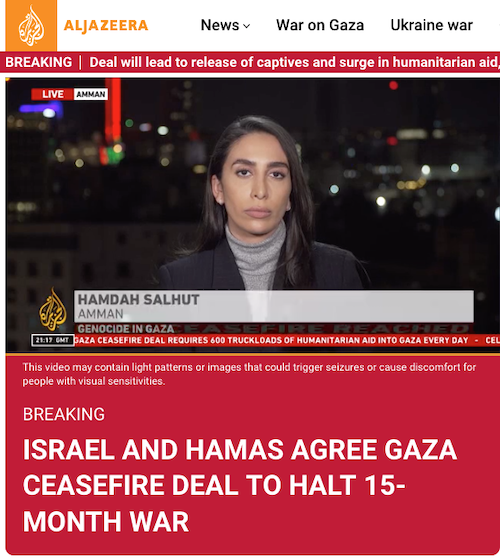
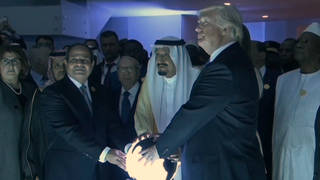
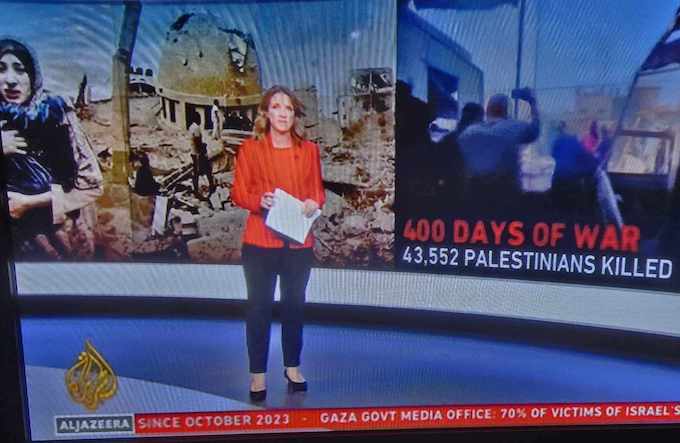
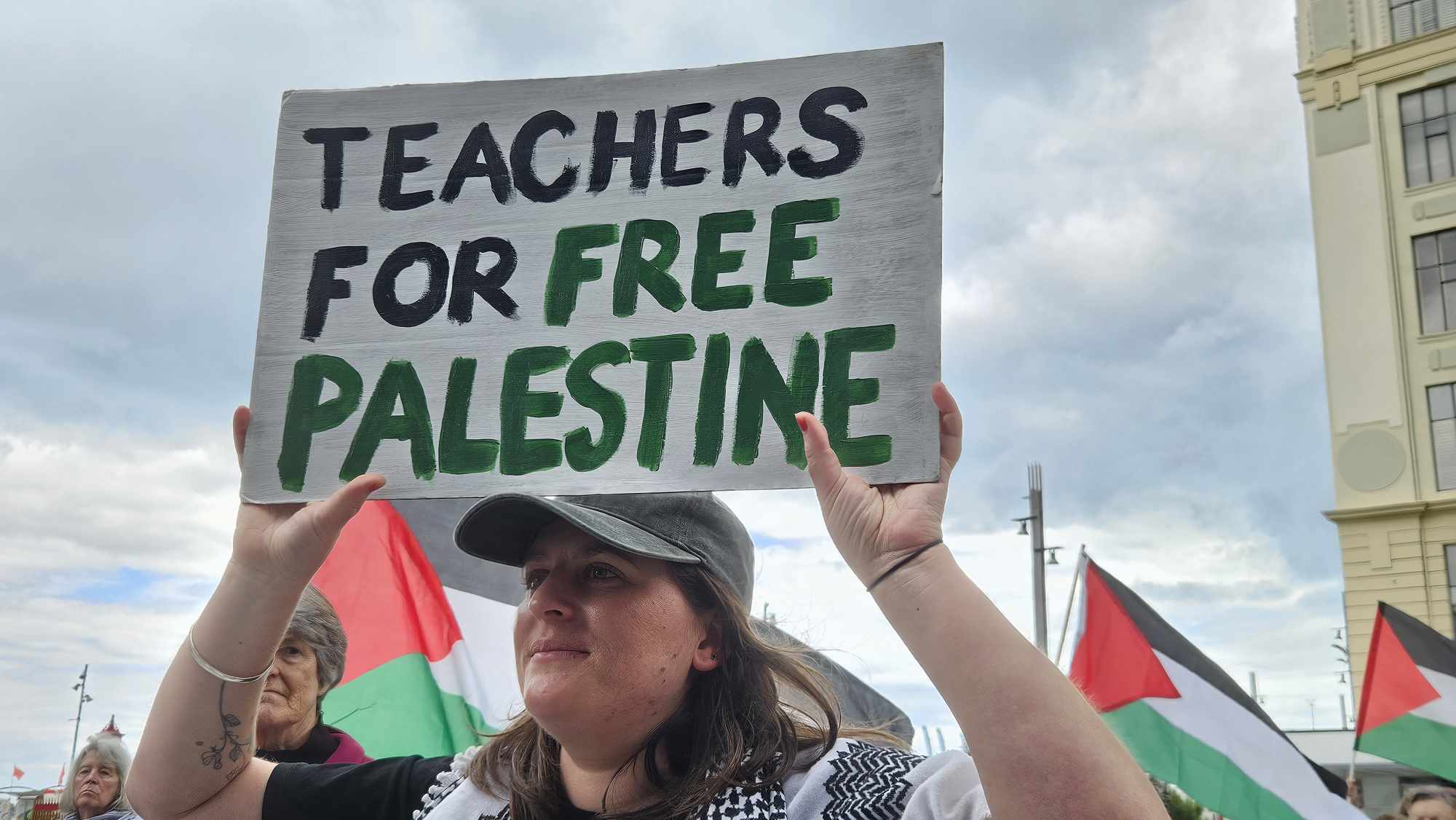
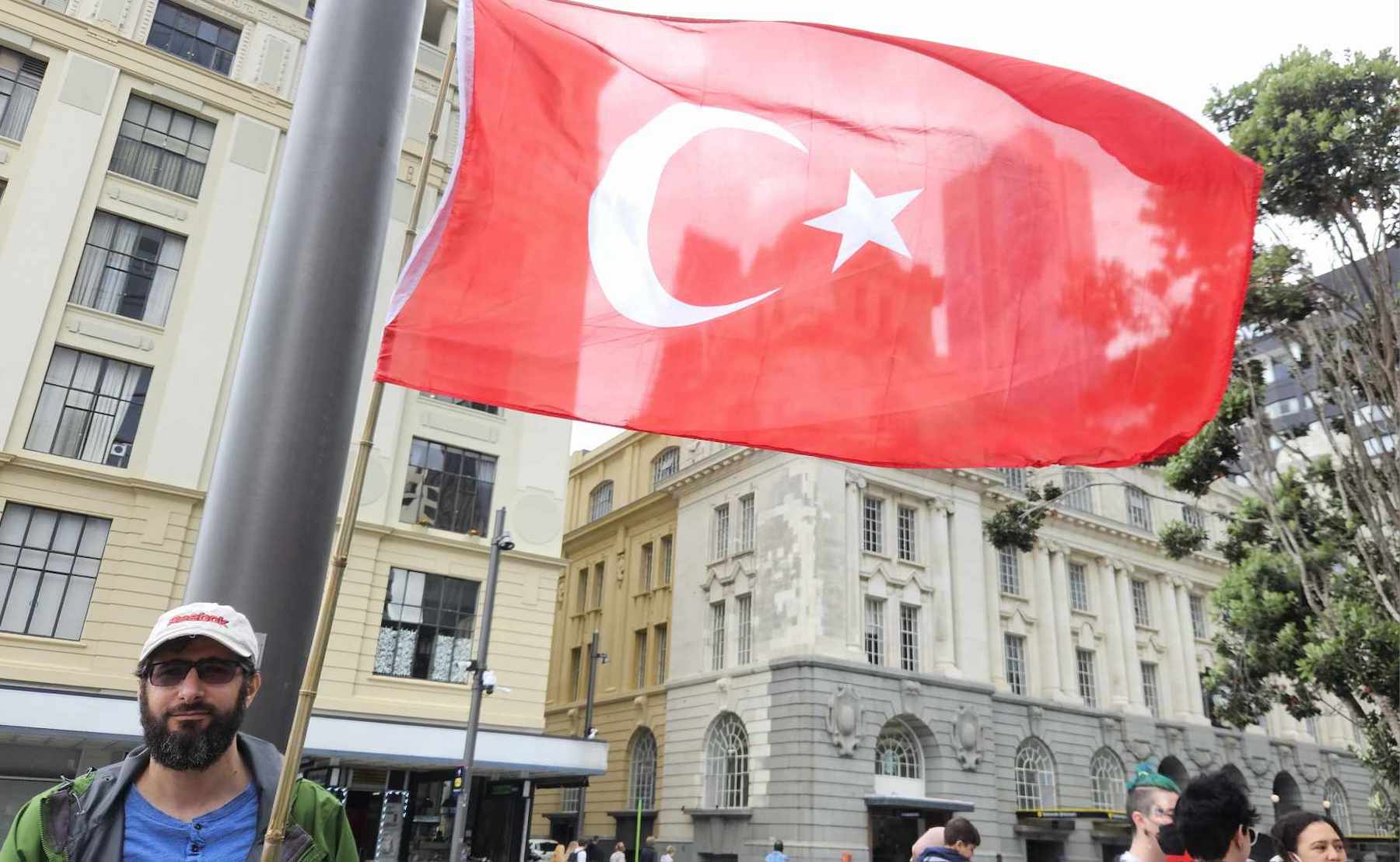
 LIVE updates:
LIVE updates: